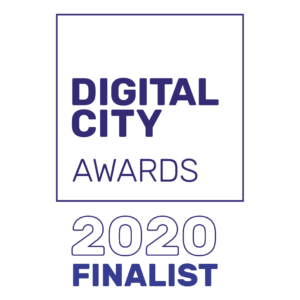You might have heard of disruptive technology as one of the buzzwords thrown around for business growth and innovation. However, when it comes down to implementing new technologies to make your business ‘big’ enough to compete with far more substantial companies, there’s never been a better time to make use of the ever-improving technology market to make yourself stand out. With more and more small businesses now investing in innovative, disruptive technologies, if you’re not joining in, you’re missing out. From Alexa to AR, Chatbots to Gamification, integrating business-changing technology into companies has never been easier.
For thousands of start-ups and small businesses, from healthcare to pawnbroking, the rapid evolution of business-oriented technology has represented countless exciting opportunities to transform their brand from small-scale to the big time. With so many disruptive, customer-focused and ultimately engaging new forms of technological advancement sprouting up every day, brands who don’t invest will soon be left behind. But when it comes to utilising these technologies for business, what’s best to invest in? What’s most suited to your style of business?
We take a closer look at the different disruptive technology readily available to business owners, and how small brands can adapt, evolve and grow using innovative new approaches to marketing and engagement. Read on to find out more.
Alexa & Google Actions
If the rise of Amazon and Google’s home voice systems have taught us anything over the last few years, it’s that voice activation and commands in the home are here to stay. With voice recognition better than ever and an Alexa or Google Home now a staple in hundreds of thousands of households, businesses not cashing in on the concept of customers accessing their services via voice search or the ‘actions or ‘skills’ functionalities may be missing out.
According to Entrepreneur writer Michael Georgiou, as of 2018, Alexa features over 30,000 distinct ‘skills’, a number that has only grown since. Investing in a voice-specific app or feature may seem futuristic for some businesses, but the reality is that other brands in your niche are probably already moving towards marketing via voice; you should be too.
The natural next step from mobile phone applications, with Google Actions or Alexa Skills, a potential customer can do anything from make purchases to provide contact information, book appointments or access local data. According to Forbes, by 2020 30% of all website sessions will be completed without the use of a screen, making optimising your business for voice search more important than ever for the sufficient growth of your business.
Chatbots
For the average consumer in 2019, instant access to the brands they buy from is vital. Since the dawning of social media, the need for businesses to be consistently in touch with their market has only become more critical. Chatbots take that concept one step further, by offering instant connectivity without the same massive investment for support staff. In 2018, Facebook reported a staggering 5.6x year-on-year growth of the use of Chatbots on its platforms.
What does this mean for small businesses? Chatbots are an excellent way to level the playing field, allowing the same high level of customer service without the same top-level investment in additional staff or around-the-clock support services. However, the use of chatbots doesn’t stop at customer service; these pieces of code can now be a useful selling tool for businesses, by providing effective marketing that’s tailored through algorithms to each potential customer. To appear as big as the leading brands, investing in technology that allows you to offer the same services is a must.
VR & AR Apps and Functionality
There are very few individuals left in the UK that don’t use their smartphones for just about everything. From shopping online to researching, chatting with friends and playing games. If you’re a small business that isn’t capitalising on the smartphone boom, then you’re likely missing out, and making yourself a far smaller fish in the big pond of online business. According to small biz trends, 71% of customers have expressed that adding AR or VR to their shopping experience would make them more likely to purchase, showing just how vital accessibility and ease of use is to the modern consumer.
For small businesses, the use of VR and AR may seem unattainable; but as more companies get in on the game, the more affordable the technology has become. Unlike QR codes, which ultimately proved to be a bit of a gimmick, AR and VR offer a far broader scope of options for businesses. From enhancing in-store shopping to providing something of value to online shoppers, making your business appear ‘big’ is all about presenting yourself as modern, evolved and on-trend. AR and VR that adds value, such as virtual tours or augmented experiences, are worth their weight in gold.
In fact, according to business.com, AR and VR collectively could be worth over $7 billion to the commercial industry as a whole, with particular focus on real estate and travel.
Gamification
The concept of gamification is simple: it’s a way in which brands can make specific processes or the use of their services more appealing through adding game design features. From badges to achievements to levels and competitions, the use of games mechanics can be vital to attract and maintain customers over time. While previously gamification has been shown as successful for internal business operations in large businesses, with 40% of Global 1000 organisations using gaming methods by 2015, there’s even more potential for growth when it comes to working with customers.
Engagement is a serious issue when it comes to motivating sales and encouraging customers to keep coming back. Gamification is an excellent way to help customers to connect with what you’re doing or selling, as well as driving awareness of your brand. From rewards programmes to created gameplay within mobile apps, gamification is a vital way a small business can compete by investing wisely in the core requirements of gamification instead of throwing money at flashy games with little substance, something often carried out by larger brands.
Blockchain
While you may, at first glance, associate blockchain technology with the somewhat murky world of cryptocurrency, this unique and innovative form of database is its own entity and is skyrocketing in popularity for big business. In fact, in 2018 84% of companies were said to be exploring the world of blockchain as a viable addition to business strategies. But one of the jobs of this technology is that it completely levels the playing field. As an open and existing technology, anyone can take advantage of it. Making it easy for small businesses to position themselves in the same space as larger corporations.
Blockchain as a technology can handle anything from payments to shipping to cloud storage. With specifically designed apps, it’s entirely possible to use this unique, secure database for any number of purposes. The advantage to small businesses, of course, is that unlike large corporations, those extensive structured business strategies for things like data storage or tracking processes aren’t in place – which makes it faster, and more accessible, for smaller brands to grow with the help of this innovative tool.
For small businesses, investing the time and money in disruptive technology has never been more critical to stay ahead. More agile, versatile and manoeuvrable than larger companies, small brands are the ideal conduit for the newest innovations in tech. To compete with the big boys, staying stagnant isn’t an option – growth and evolution are the names of the game.


































